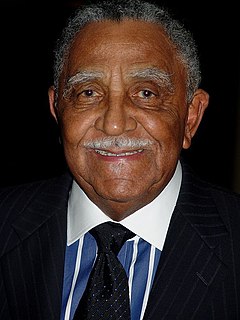A Quote by Brock Yates
While greenies and their media flunkies continue to savage the gasoline-powered internal-combustion engine and rhapsodize about hybrids, hydrogen, electrics, natural gas, propane, nuclear, and God-knows-what-other panaceas, perhaps including bovine urine, there are no realistic, economically viable alternatives. None. Zero. Like it or not, as long as we remain dependent on the private automobile for transportation (roughly 80 percent of all movement in the nation is by car), we are harnessed to the IC gas engine.
Quote Topics
About
Alternatives
Automobile
Bovine
Car
Combustion
Continue
Dependent
Economically
Engine
Gas
Gasoline
God
Hydrogen
Including
Internal
Knows
Like
Long
Media
Movement
Nation
Natural
Natural Gas
None
Nuclear
Other
Percent
Perhaps
Private
Propane
Realistic
Remain
Roughly
Savage
Transportation
Viable
While
Zero
Related Quotes
The harsh reality is that America moves on four wheels, powered by conventional internal-combustion engines. At this point, while the elite media (excluding Newsweek) trumpet the benefits of hybrids and Ford and Toyota plan to lead the nation into a low-powered, high-mileage hybrid Utopia, the multitudes remain loyal to the gas-guzzling family bus in the driveway.
Everybody thinks an automobile needs an engine. Well, an automobile doesn't necessarily need an engine. What we do is shift electric motors into the wheels of our automobiles and so we have a completely different kind of thing where we have four independent intelligent wheels rather than a traditional internal combustion engine and power train and so on.
It's so easy to demagogue the issue and make someone who speaks out against the internal-combustion engine sound like an insane communist, when the truth is that the internal-combustion engine is the biggest threat to my life in the next 25 years, in terms of what it's doing to our environment and how it's depleting the ozone layer and so forth.
In the near future, despite the development of alternative energy, when you look at the economics and environmental standards, then there's no other source of primary energy in the world than natural gas. Well, perhaps there is nuclear energy but there are also a lot of issues there and there are opponents of nuclear energy. Gas doesn't have those opponents. But there is a country that is, obviously, the world leader in gas reserves. That's our country, the Russian Federation.
There was a study done in the early 20th century of all the entrepreneurs who entered the automobile industry around the same time as Henry Ford; there were something like 500 automotive companies that got funded, had the internal combustion engine, had the technology, and had the vision. Sixty percent of them folded within a couple of years.
It really comes down to parsimony, economy of explanation. It is possible that your car engine is driven by psychokinetic energy, but if it looks like a petrol engine, smells like a petrol engine and performs exactly as well as a petrol engine, the sensible working hypothesis is that it is a petrol engine.
Today, natural gas now outstrips coal as the leading provider of electricity in America. If this is as big as people believe it is, natural gas will soon be powering trucks and marine ships. Maybe even standard commercial cars that people use at home through compressed natural gas, other gas to liquids. The potential is there for more energy independence by America and a reliance on cleaner fuel - natural gas emits half as much as coal, in terms of carbon emissions. That's a real bounty.


































